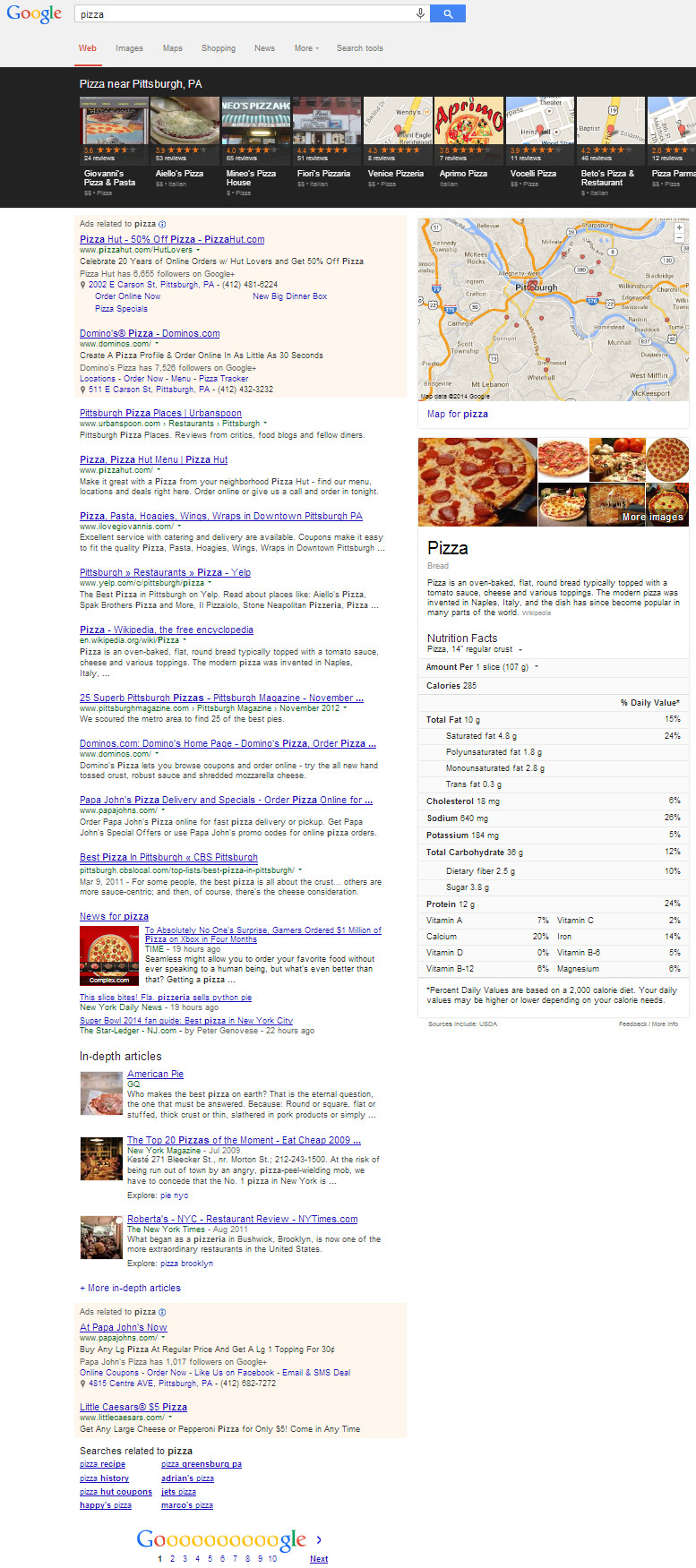Three Ways To Shift Your SEO Strategy To A 2014 Mindset
“Life is a series of natural and spontaneous changes. Don’t resist them; that only creates sorrow. Let reality be reality. Let things flow naturally forward in whatever way they like.” – Lao Tzu
When I ask clients about their most valued SEO KPI’s, they inevitably come back to two major points: Rankings & Backlinks. It’s no surprise why, as this is what folks have been taught over the past 10 years; that online marketing & SEO is something to game, to hack. A short cut if you will: Beat the system and come up first by doing the right code tweaks. It went something like this:
Add the right words to certain places on your web pages + Get links from tangentially relevant sources = Profit
2013 certainly changed this. In fact, we could call it the “Year of Change” in SEO. This was a year in which Google launched update after update to fight article/e-zine linking sites, bad backlink strategies, and over-optimized pages. It’s also the year that Google Analytics data for keywords were taken away from marketers as a data point and lumped into a (not provided) bucket. Google’s ranking algorithm now compiles 200+ factors to serve web sites to searchers, yet much of the online marketing world’s mindset has continued to focus on the Old Two: Rankings & Backlinks.
The SERPS themselves have changed as well. In this (highly) exaggerated example from the Moz Team Blog, we can see that there are no longer 10 text results on a search result page, but a wealth of possible and contextual information types: Carousel for Local Places results, Shopping Ads, data from Knowledge Graph, News Items, and so forth.
Let’s look at a specific example. In the older days of the web, domain squatting was a popular activity. Someone would buy a keyword heavy domain and sell it to the highest bidder. Pizza.com sold to a buyer for $2.6 million. The assumption was that users would inevitably type the domain or that the domain would rank #1 because it was keyword heavy and could have been easily optimized/linked.
Let’s look at a search for pizza today:
There are a lot of things that pop up on my results, but no pizza.com (which is still around, by the way). Why? Because of Google’s 2013 changes.
They are serving me results that are:
- Locally Relevant (Places I might want to try in Pittsburgh)
- Contextually Relevant (News articles about pizza and pizza trends)
- Knowledge Relevant (Nutrition facts and data from Wikipedia)
These are the 3 big concepts you should use to realign your SEO in 2014. If I were advising a local pizzeria on how to compete with these results I’d have them focus on:
Location Relevance
- Are you listed on Google Local Places? If so, have you claimed your profile and added the necessary information? Is your data correct? Did you include photos or any video content?
- Are you listed on local search and review guides? Use getlisted.org to find out.
- Do you have reviews on Google, Yelp, Urban Spoon and other platforms? This will help a user choose a pizzeria from the carousel.
- Do you have a 360 interior view attached to your map view? This helps customers look inside your business before visiting.
- Can I view your menu if I’m on a mobile device? Remember, there’s less screen real estate on a phone, so having a mobile-friendly website is no longer recommended, it’s necessary.
Contextual Relevance
- Forget about keywords for a second — does your search result and website answer my question? I searched “Pizza” as a keyword but I really am asking “What pizzerias are near my location and which one would I want to eat at?”
- Is the right information available? For a pizzeria, this may be as simple as letting a user know that you offer delivery on your homepage or that they can place an order online. Maybe you have a local specialty that has to be tasted to be believed. Include the right information to help a user make a decision.
- Are you creating the right conversions on your site? Add a click-to-call button to your site for mobile and track this as a Google Analytics Goal. Google is very much looking to see if your site is effective.
Knowledge Relevance
- Are you using social networks to demonstrate your business experience? Google+, Facebook and Twitter are great places to share content with your customers. Building strong customer lists and making sharable content available on social networks can influence your position in the search results. Of course you’ll want to share specials and deals for your pizzeria, but you can also share videos you make while visiting food trade shows, post pictures of your best pizza tosser in action, and create other content that’s not just promotional in nature.
- Link your business to vendors, suppliers, partners, local groups and non-profits you work with and relevant media in your industry that back up your knowledge and expertise. Instead of submitting to every directory you can find, imagine for a minute that there is no Google, no search engines, and no internet. Would you want to connect your business to this other company or organization? If not, you probably don’t want that link. Your pizzeria should definitely have a link from the Little League Team you sponsor and from the local Chamber of Commerce if you’re a member.
- Demonstrate your expertise through content. A pizzeria near my house in Pittsburgh has an alternative menu on their site for people seeking gluten free pizza and Italian food and they’ve received press/links because of this. What’s your specialty? Blog about it, include it on your site and tell others.
2014 is the year we get back to online marketing basics and design our campaigns as if they were to run in the real world. Follow Lao Tzu’s advice and embrace the new changes. By demonstrating local relevance, context and knowledge, you can have a great year on the web.
Let’s celebrate that with some pizza.




